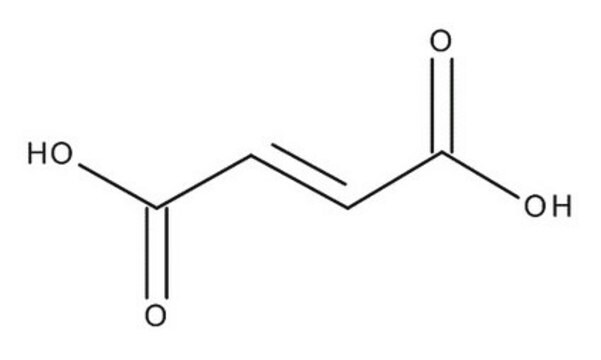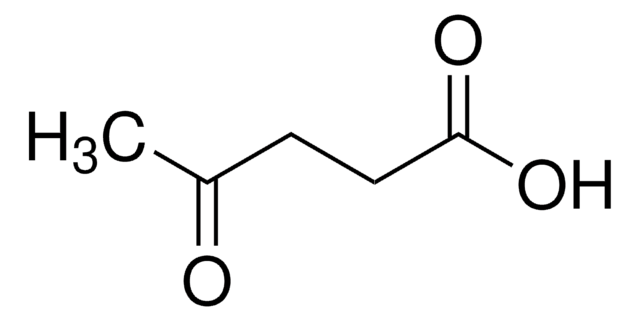W248800
Fumaric acid
FCC, FG
Sinónimos:
Boletic acid, Lichenic acid, Trans-1,2-ethylenedicarboxylic acid
About This Item
Productos recomendados
biological source
synthetic
Quality Level
grade
FG
Halal
Kosher
reg. compliance
EU Regulation 1334/2008 & 178/2002
FCC
FDA 21 CFR 117
FDA 21 CFR 172.350
FDA 21 CFR 175.105
vapor pressure
1.7 mmHg ( 165 °C)
form
powder or crystals
autoignition temp.
1364 °F
expl. lim.
40 %
mp
298-300 °C (subl.) (lit.)
application(s)
flavors and fragrances
documentation
see Safety & Documentation for available documents
food allergen
no known allergens
organoleptic
odorless
SMILES string
OC(=O)\C=C\C(O)=O
InChI
1S/C4H4O4/c5-3(6)1-2-4(7)8/h1-2H,(H,5,6)(H,7,8)/b2-1+
InChI key
VZCYOOQTPOCHFL-OWOJBTEDSA-N
¿Está buscando productos similares? Visita Guía de comparación de productos
Application
signalword
Warning
hcodes
Hazard Classifications
Eye Irrit. 2
Storage Class
11 - Combustible Solids
wgk_germany
WGK 1
flash_point_f
523.4 °F
flash_point_c
273 °C
ppe
dust mask type N95 (US), Eyeshields, Gloves
Elija entre una de las versiones más recientes:
¿Ya tiene este producto?
Encuentre la documentación para los productos que ha comprado recientemente en la Biblioteca de documentos.
Los clientes también vieron
Nuestro equipo de científicos tiene experiencia en todas las áreas de investigación: Ciencias de la vida, Ciencia de los materiales, Síntesis química, Cromatografía, Analítica y muchas otras.
Póngase en contacto con el Servicio técnico








